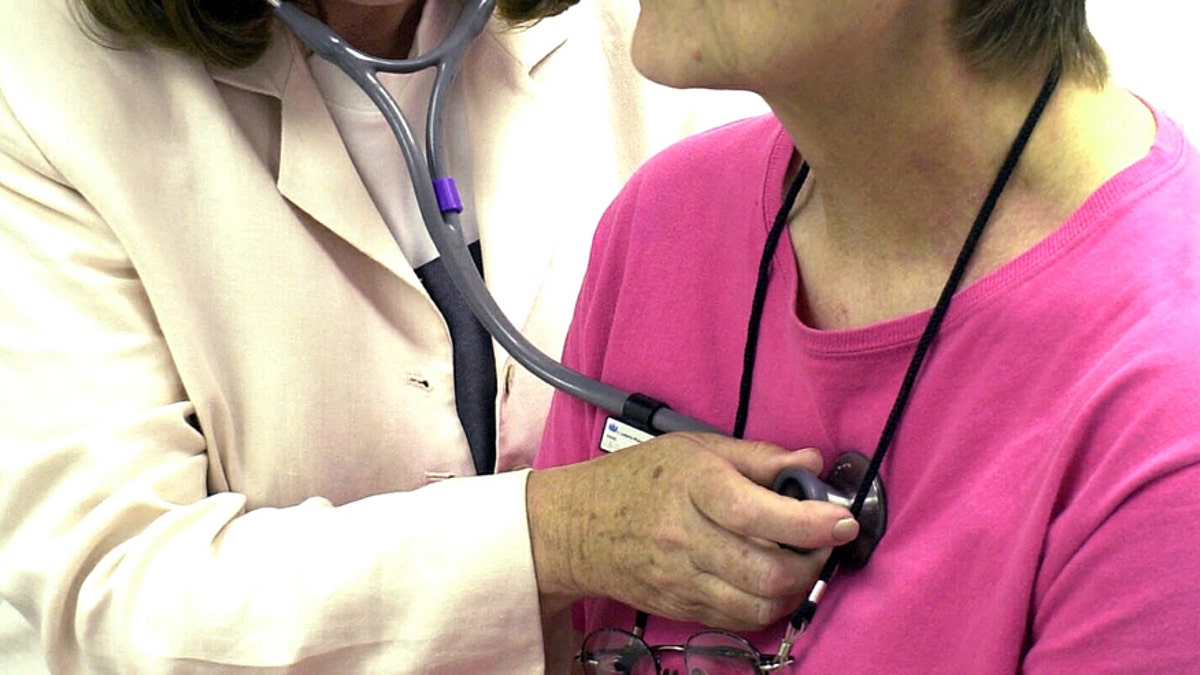
(AP)
Though we’ve done a great job moving the needle for better heart health with men, women are still at high risk with cardiovascular disease being the No. 1 cause of death among women here in the U.S.
There are a number of reasons, so I’m challenging all women with a three-pronged approach to ensuring their heart health.
Step 1: Get Educated
Women often manifest symptoms of heart disease differently than men, and people may not immediately think they are related to the heart. Men feel the symptoms most often associated with heart disease, like intense chest pain, while women often feel other milder symptoms such as:
- Tightness or pressure in the throat, jaw, shoulder, abdomen, back or arm, or a burning sensation in the upper body;
- Shortness of breath;
- Generalized weakness, dizziness or lightheadedness;
- Nausea, with or without vomiting;
- Abdominal discomfort;
- Awareness of heartbeat (palpitations).
Since these symptoms are not well known and can signal other, less threatening health issues, women -- and sometimes their doctors -- often overlook or attribute the symptoms to other conditions.
Women often put off seeing a doctor or downplay their symptoms. For instance, they describe chest pain as a bit of discomfort. But in order for doctors to really take notice, it is best to use the word “pain.” Doctors know that pain needs attention. And of course, it is important to actually make the appointment and go see your doctor in the first place. Only you can make sure you put your health first.
Step 2: Get Heart Healthy
You hear this all the time, but it doesn’t mean it’s any less important!
It’s simple: Eat right with lots of fruits and vegetables and a reduced focus on meat, and exercise regularly.
Step 3: Get Tested
You and your doctor need to agree on the most appropriate tests based on your symptoms or suspicions. There are many tests available, and they all have their uses.
Since it is harder to diagnose coronary artery disease (CAD) in women, we often undergo multiple -- and sometimes unnecessary -- repeat tests exposing us to additional risks. You should also be aware of risks associated with each test and talk with your doctor about the best approach for you.
Some tests come with risks such as radiation, some with risks associated with surgery. For instance, a nuclear stress test exposes a person to the equivalent of 39 mammograms or approximately 13.6 years’ worth of natural radiation. This is especially important for women to know, and for doctors to consider when deciding which test or tests to use because breast tissue is sensitive to radiation. Since 1980, patients in the U.S. have experienced an increase in radiation exposure from medical imaging at six times what it was previously.
And then there is the fact that certain parts of women’s bodies -- such as smaller hearts and breast tissue -- can impact the accuracy of common CAD imaging tests, leading to higher rates of false-positive and false-negative test results.
For those experiencing non-urgent symptoms, there is a simple sex-specific blood test called Corus CAD -- which is especially beneficial for women – in helping doctors rule out obstructive coronary artery disease, the most common form of heart disease. It is a simple blood test, and is the only test of its kind that takes cardiovascular differences between men and women into account.
By working with your doctor you can determine which of these tests is right for you, and when, during your care. Knowledge really is your guiding principle here.
You are the lead person responsible for your care. Being informed when you talk with your doctor is part of the process. Learn more today so you can take action when you need to. A campaign called "Spread the Word" offers a great website with a ton of resources to help you. We want you to join in and share this information with those you love. After all, we can’t take action if we aren’t informed.
For more information, visit GoSpreadtheWord.com.
Dr. Annabelle Santos Volgman a board certified cardiologist who serves as McMullan-Eybel Chair for Excellence in Clinical Cardiology Professor of Medicine at Rush College of Medicine in Chicago and Medical Director of the Rush Heart Center for Women.








































